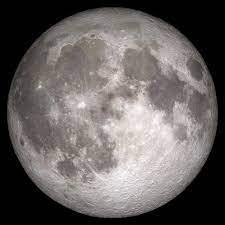An international prize worth £1.2 million has been launched in a bid to find innovative technologies capable of purifying water buried beneath the moon’s lunar surface.
The new Aqualunar Challenge, in collaboration with the UK Space Agency, Challenge Works, the Canadian Space Agency, and Impact Canada, will reward both UK- and Canadian-led startups with seed funding to develop such technologies—which could also have benefits here on Earth.
Research conducted to mark the launch of the new prize found that just over half (51%) of people in the UK believe that technologies designed for the moon should prioritise sustainability, with 86% saying they’d like to see lunar water purification tech be adapted for use on Earth.
Entries to the newly-announced prize should help solve the challenge of removing contaminants and purifying water found on the moon’s surface in an efficient, reliable way.
The UK-led teams with the ten most-promising ideas will each receive £30k in seed funding in June this year, helping them to develop their ideas.
In March 2025, three teams will then be named as winner and runners up, sharing an additional £300k to take their solutions to the next level.
Successful Canadian-led teams will receive a similar amount, provided by the Canadian partners.
The deadline for entry is 8 April 2024.
Commenting on the new prize, the minister for space at the Department for Science, Innovation and Technology, Andrew Griffith, said: “The UK has always been the home of great ideas and by backing UK start-ups to develop innovative technologies, long-term missions on the Moon may be possible.
“The Aqualunar Challenge demonstrates our commitment to collaborating on space innovation, unlocking commercial opportunities, supporting exploration of the Moon and building on our important relationship with Canada.”
The UK Space Agency’s CEO, Paul Bate, also commented: “The Aqualunar Challenge is rewarding the development of technologies that will help make this a reality by purifying the ice that is locked inside the Moon’s soil.
“While the challenge is focused on developing these technologies for the harsh environment of the Moon, they could also have important uses here on Earth.”
Holly Jamieson, executive director at Challenge Works—which is delivering the prize in the UK—further added: “To survive on the Moon, astronauts will need water to drink and to grow food. Water molecules – H2O – can also be split to produce oxygen to make breathable air and hydrogen for fuel. For a long-term lunar base to be viable we will need alternatives to sending deliveries of water, food, air and fuel in rockets from Earth.
“The Aqualunar Challenge is calling on innovators, start-ups, scientists, academics, engineers and problem solvers to submit their ideas – whether they have worked in the space sector previously or not.”
Source: DIGIT

